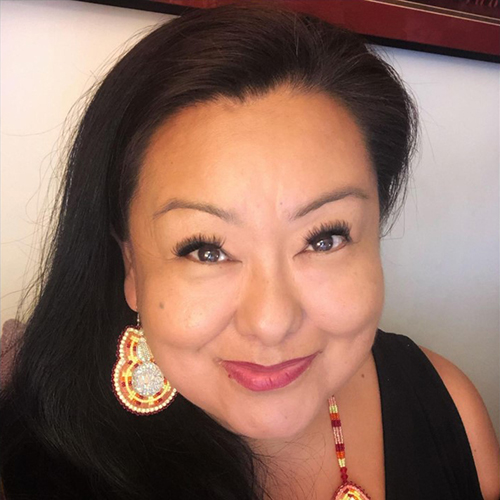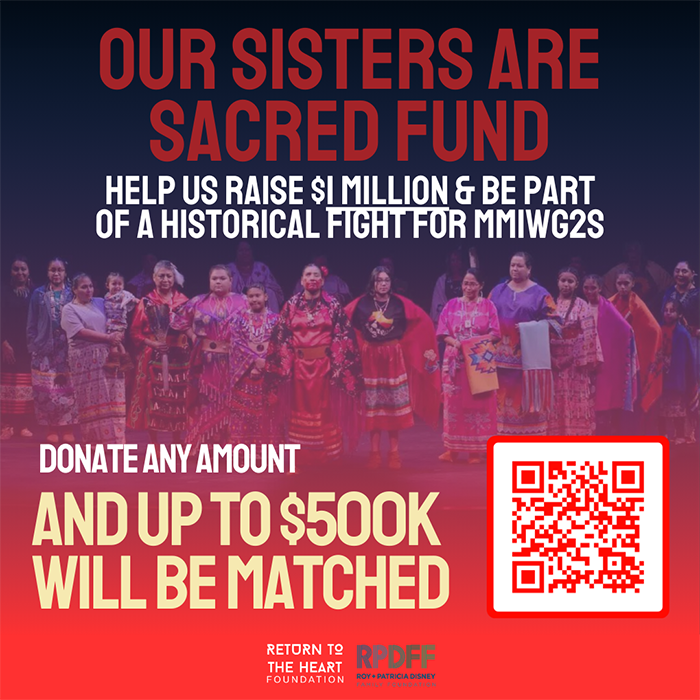Statement of Jocelyn Frye, President of the National Partnership for Women & Families WASHINGTON, D.C. – June 28, 2024 – Today, the Supreme Court upended sound, longstanding, legal precedent that has provided protections for everyday people for decades...

The Silent and Often Invisible Crisis of Missing and Murdered Indigenous Women and Girls – No More Stolen Sisters
I was working in Washington D.C. when I heard news that stopped me in my tracks. It was so deeply distressing and horrifying. Savanna LaFontaine-Greywind, a 22 year old member of the Spirit Lake Nation in North Dakota was 8 months pregnant when her baby girl was cut from her body. A week later her baby was found with a neighbor – that neighbor was later convicted to a life sentence for Savanna’s murder. Savanna’s case brought national attention to the issue of missing and murdered Indigenous women (MMIW) in the United States and Canada, shedding light on a crisis that has been ignored for far too long. We cannot turn a blind eye and must face this crisis to find solutions.
The violence against Indigenous women is multifaceted and deeply rooted in historical and systemic injustices, including colonialism, racism, and a lack of adequate resources and support for Indigenous communities leaving families shattered and justice elusive. Understanding the complexities surrounding MMIW is essential to initiate meaningful action towards justice, healing, and prevention.
The true extent of MMIW remains obscured by inadequate data collection, underreporting, and systemic negligence. Indigenous women are disproportionately affected by violence, with rates of homicide and disappearance significantly higher than the national average. Despite numerous inquiries, commissions, and advocacy efforts, justice for MMIW remains elusive, with many cases remaining unresolved or dismissed by law enforcement. Alarming research shows:
- Murder is the third leading cause of death for Indigenous Women
- 40% of victims of sex trafficking are identified as American Indian/Alaskan Native Women
- More than 4 out of 5 American Indian and Alaskan Native women have experienced violence
We learned in school that in 1492, Columbus sailed the ocean blue, discovered America, and discovered what he thought was India, incorrectly calling the Native/Indigenous people, “Indians.” The truth about Columbus has been revealed but many people have chosen to ignore it, and the violence and devastation from first contact has continued until today. More recently there have been calls for Columbus statues to be removed in cities across the country.
There are thousands of stories that have remained out of the mainstream public eye. Anna Scott, a young Pyramid Lake Paiute tribal member, is a poignant example of the ongoing violence and devastation faced by Indigenous communities across North America. Anna Scott’s life was brutally cut short in 2022 when she was killed.
Anna and Savanna’s stories are not isolated incidents but rather emblematic of a larger pattern of violence and impurity that disproportionately affects Indigenous women. Too often, cases like theirs go unsolved, relegated to the shadows of indifference and neglect. The lack of closure and accountability deepens the wounds of their families and communities, exacerbating the intergenerational trauma already borne by Indigenous peoples.
We must acknowledge this crisis.
Advocacy Efforts & Solutions
It is crucial that we continue to raise awareness about the MMIW crisis. This means:
- Listening to and amplifying the voices of Indigenous people
- Advocating for policy changes, similar to the Feather Alert enacted in California
- Working to address the underlying systemic issues that perpetuate violence and inequality, through research like the Not One More: the Not Invisible Act Commission Final Report
Efforts to address the MMIW crisis have gained momentum in recent years, with advocacy groups, grassroots organizations, and Indigenous communities calling for action to address the root causes of violence and to provide support and justice for victims and their families. Collaborative task forces are also being formed in some states to assess systemic causes behind the high rate of disappearances and murders of indigenous women and people.
Call to Action
The National Day of Awareness for Missing and Murdered Native Women and Girls is May 5th, 2024. Please join the Return to the Heart Foundation in making a historic investment in grantmaking to Native Womxn-led organizations that are dedicated to fighting for Missing and Murdered Indigenous Women, Girls and Two-Spirit People (MMIW/G2). Grants will be awarded to Indigenous women-led organizations working on MMIW/G2 issues across the nation with a preference for states with the most alarming statistics.
Grants will be awarded to Indigenous women-led organizations working on MMIW/G2 issues across the nation with a preference for states with the most alarming statistics. The awards will be named after a Missing or Murdered Indigenous Woman or Girl to continue to highlight and bring awareness to the issue. We will leverage our strong relationships in Native networks, philanthropy, and the media to raise awareness and amplify our efforts to disrupt the crisis.
The Roy and Patricia Disney Family Foundation, has made a lead investment and will match dollar-for-dollar raised up to $500,000. We are working to raise $1 million+ by fall 2024. The time to take action is now. We challenge you to join us in taking a stand to fight these horrific gender crimes and support grassroots, Native Women-led organizations working to end this violence.
Please contact Return to the Heart CEO Gina Jackson at gina@return2heart.org for more information.
The Return to the Heart Foundation’s vision is to empower and resource Indigenous Women who bring holistic healing to their communities and beyond. Through this work, we cultivate a world where Indigenous Women and Girls are valued, protected and supported – and where Mother Earth thrives for future generations.


